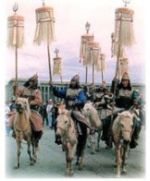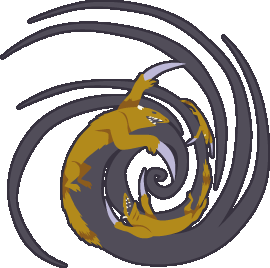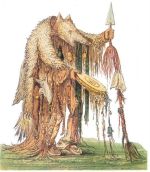There are a number of myths, olden day cures and folklore about our favorite slinky friend, the ferret 🙂
Here are a few I’ve found on my travels around the internet …
Olden Day Cures

Near Corofin the favourite cures for this illness (whooping cough) were to pass the child under an ass, or to give the sufferer any food or cure prescribed by a man on a white horse when met accidentally, or to give the patient the ‘leavings of a ferret’ i.e. food left uneaten by that animal.
A Folklore Survey of County Clare by Thomas Johnson Westropp
Donkey’s milk and ferret’s (food) leavings, together with the fasting spit and boiled primroses, were time-honored cures for jaundice and other mystery complaints.
Old Animal Charms and Cures (“Tales from the West of Ireland” by Sean Henry)
Ferret — Though not the best-loved of animals, the ferret does have the redeeming feature of being able to cure Whooping Cough, according to ancient English and Irish tradition. The procedure recommended is to let a ferret drink from a bowl of milk and then to feed the remainder to the patient.
Cassell’s Dictionary of Superstition – David Pickering
(I take umbrage at the term ‘not the best-loved of animals’! Perhaps we should write to Mr Pickering and tell him in no uncertain terms how VERY MUCH LOVED our ferrets are!!! 😉 )

Folklore
Russian Folklore regarding the Ferret
 When Genghis Khan’s “Golden Horde”, the descendants of his Tartars, turned their eyes towards northern Russia, they met with an unexpected adversary.
When Genghis Khan’s “Golden Horde”, the descendants of his Tartars, turned their eyes towards northern Russia, they met with an unexpected adversary.
Fifteen year old wizard Volga Vseslavich decided to challenge the Tartars with an army of barely 7000. First Volga turned himself into a ram to go through the mountains undetected. When he neared Khan’s fortress, he became a small bird and flew to the window sill of Khan’s bed chamber.
He heard Khan’s wife tell her husband of a dream she had where a small Northern bird slew a Southern raven. She recognized the small bird in her dream as a wizard and begged her husband not to attack the north. As Khan laughed at his wife, Volga changed into a ferret, and entering the armory, chewed through the arrows and bow strings. He then entered the stables as a wolf and killed the horses of Khan’s army.
Volga then flew back to his army as a swift falcon. Marching his army from Kiev, he changed them all into ants as they neared Khan’s palace. The sentries therefore, saw nothing, until Volga’s soldiers were retransformed into men, right at the gates. With no warning, weapons, or horses, Khan’s army was defeated.
Kamaitachi – Japanese Folklore regarding the Weasel
 Sometimes a person walking in the mountains will be beset by a ferocious wind, and only later will they discover the deep but painless gashes made in their skin as if by some very sharp instrument.
Sometimes a person walking in the mountains will be beset by a ferocious wind, and only later will they discover the deep but painless gashes made in their skin as if by some very sharp instrument.
This is said to be the work of the kama-itachi, a weasel-like creature that rides in a whirlwind, and is equipped with very sharp sickle-like claws with which to attack humans.
In Gifu prefecture, the kamaitachi is said to work in teams of three, the first rushing upon and stunning the victim, the second cutting with its claws, and the third applying medicine that eliminates pain and stifles the bleeding.
(Copyright) The Obakemono Project
 Shamanism ~ Ferret, Power Animal, Symbol of Keen Observation
Shamanism ~ Ferret, Power Animal, Symbol of Keen Observation
by Ina Woolcott
Ferrets are members of the weasel family. Their medicine includes stealth, cunning, skilfull hunters, cleverness, ingenuity, revenge, keen observation, ability to see hidden reasons behind things.
Archaeological and historical sources suggest that ferrets have been domesticated for 2,500 years at least. Greek historical give reference to the ferret about 450 BC. Roman documents refer to the use of ferrets to hunt rabbits around the time of Christ.
Very skillful tunnel hunters, it is believed ferrets were used by the Egyptians as well as farmers and seafarers to get rid of rodents in barns and on ships. However, the history of the ferrets domestication is speculative, without any concrete evidence, giving this small animal an illusive air.
Ferrets are cheerful, playful animals with the inquisitiveness of the raccoon and the amiableness of a kitten. They are also opportunists, quick to take advantage and will filch anything they can drag to a safe hiding place to be used at a later time. Brainy and cunning the ferret shows us how to use our creativeness to build a safe haven for ourselves, and to stock up with things that may be needed – always be ready for any situation that may come into existence. The ferret is a good, helping ally to have around in hard time.


Deprecated: str_contains(): Passing null to parameter #1 ($haystack) of type string is deprecated in /home4/kitchast/public_html/wp-includes/comment-template.php on line 2684